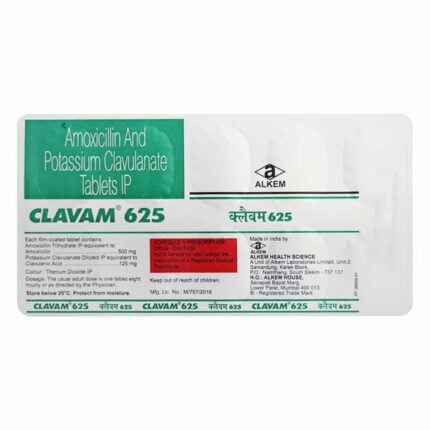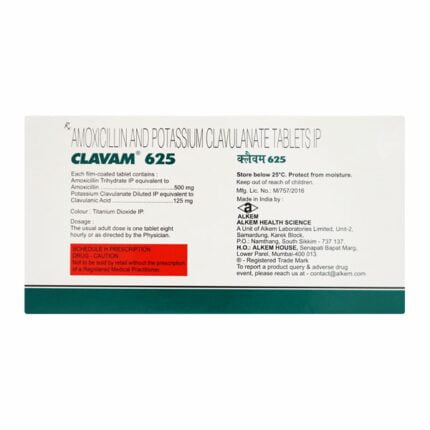Product introduction
Vladimir-M 500 Tablet can be prescribed alone or together with other diabetes medications. All diabetes medicines work best when used along with a healthy diet and regular exercise. The dose you are given will depend on your condition, blood sugar levels, and what other medicines you are taking. Taking it with meals helps to reduce the chances of developing an upset stomach.
You should take it regularly, at the same time each day, to get the most benefit and you should not stop unless your doctor recommends it. It is controlling your blood sugar levels and helping to prevent serious complications in the future. It is important to stay on the diet and exercise program recommended by your doctor while taking this medicine. Your lifestyle plays a big part in controlling diabetes.
The most common side effects of taking this medicine include diarrhea, nausea, vomiting, upset stomach, headache, sore throat, weakness, gastroesophageal reflux disease, excessive sweating, and decreased appetite. Low blood sugar level (hypoglycemia) is a possible side effect if you are also taking other diabetes medicines like insulin or sulphonylurea, so you need to know how to recognize and deal with it.
This medicine is not suitable for everyone. Before taking it, you should let your doctor know if you have ever had kidney, liver, or heart disease, problems with your pancreas, or if you drink a lot of alcohol. Pregnant or breastfeeding women should also consult their doctor before taking this medicine. Some other medicines can affect this one so tell your doctor about all the medicines you are taking to make sure you are safe. You should try to avoid drinking alcohol as it lowers blood glucose. Your doctor will check your kidney function and blood sugar levels before and during treatment.
Uses of Vladimir-M Tablet
- Treatment of Type 2 diabetes mellitus.
Side effects of Vladimir-M Tablet
Common side effects of Vladimir-M
- Hypoglycemia (low blood glucose level)
- Trembling
- Headache
- Dizziness
- Nausea
- Weakness
- Gastro-esophageal reflux disease
- Increased sweating
- Decreased appetite
















